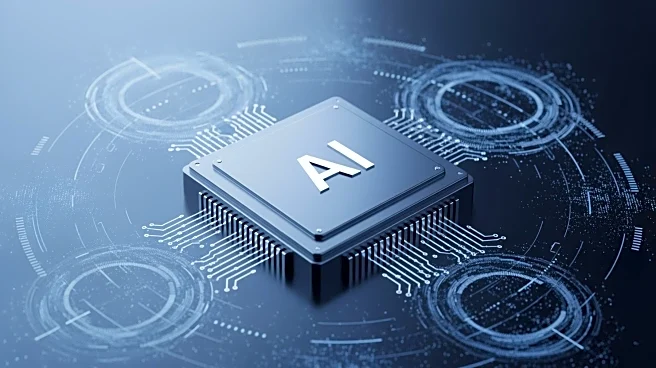What's Happening?
SecurityWeek discusses the emergence of agentic AI systems, which are autonomous systems capable of planning, acting, and coordinating across services. These systems promise operational scale and speed
but also introduce new governance challenges and security risks. Agentic AI can automate complex processes, such as incident response and threat hunting, but its autonomy increases the risk of unintended actions and complicates accountability. The article emphasizes the need for pragmatic interventions to address these risks, including mapping agentic capabilities, enforcing least privilege, and maintaining human oversight for critical decisions.
Why It's Important?
The rise of agentic AI systems has significant implications for businesses and cybersecurity. While these systems offer potential productivity gains, they also expand the attack surface and introduce new threat vectors. Organizations must balance innovation with ethical governance to ensure fairness, accountability, and public trust. The ability of agentic AI to act autonomously raises concerns about decision opacity, goal misalignment, and adversarial misuse. Addressing these challenges is crucial for maintaining security and trust in AI-driven processes, as well as for protecting sensitive data and systems from exploitation.
What's Next?
Organizations are encouraged to implement engineering controls, governance frameworks, and continuous validation to mitigate the risks associated with agentic AI. This includes auditing agent inputs and actions, embedding safety checks, and requiring human-in-the-loop governance for high-risk decisions. Red-teaming agentic behaviors and expanding governance frameworks to cover agent lifecycle are also recommended. By establishing rigorous controls and traceability, businesses can leverage agentic AI for strategic advantage while minimizing operational hazards and preserving stakeholder trust.
Beyond the Headlines
The ethical and legal dimensions of agentic AI systems are critical considerations. As these systems become more integrated into business operations, questions about accountability, transparency, and the preservation of human oversight arise. SecurityWeek's insights highlight the importance of designing AI systems that complement human abilities and adhere to ethical standards, ensuring that technology serves as a tool for empowerment rather than a source of risk. This approach requires collaboration between industry leaders, policymakers, and security experts to establish frameworks that support responsible AI integration and promote a culture of continuous learning and adaptation.










